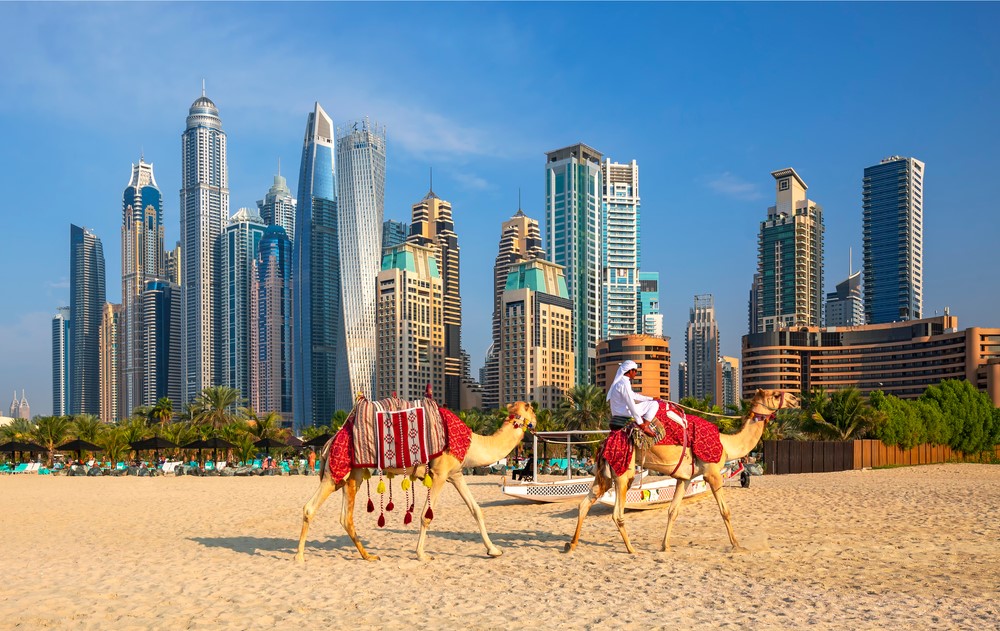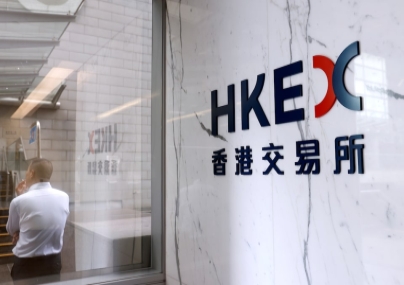
2023年以来,中国与中东地区间往来日益活跃,中东多国凭借友好的投资环境、潜力较大的当地市场等,不断吸引各个产业领域的中国企业前往考察与落地,也为中国律所提供了新的服务机会。法律专家和ALB分享了对这一趋势的观察,以及其中存在的挑战。
2022年底,中国国家主席习近平出访沙特阿拉伯(“沙特”),随后,中国与沙特以及中东整个地区的经贸、投资交往日益活跃,“出海中东”在过去两年成为了中国企业海外投资领域的热词。
根据官方数据,贸易方面,2022、2023两年,中国、中东双边贸易额都在5000亿美元上下,和2021年相比增长达20%以上。
投资方面,目前尚缺乏较为权威的统计路径,但在2022年底,中国已成为阿拉伯联合酋长国(“阿联酋”)的第三大外国投资者;根据迪拜国民银行调研数据,2023年,中国是沙特第一大绿地投资国,投资额占沙特全部绿地投资的58%。
双向推进
谈到过去两年中国对中东地区投资热情增长的原因,德恒律师事务所中东办公室主任贾怀远律师指出国际地缘政治因素不容忽视,在目前的宏观环境之下,“适合中国企业展开海外投资,且投资环境较为宽松的区域,主要集中在东南亚、墨西哥,以及中东地区”。
“仅2023年一年,中国副国级代表团赴中东数量为7个;部级代表团为近80个;各个地方政府、协会的代表团数量则是难以统计。”
- 贾怀远,德恒律师事务所
贾律师2004年来到迪拜,过去20年间见证和亲历了迪拜、乃至中东北非区域(MENA),尤其是海湾六国(GCC)的发展,也切身体会到中国企业赴中东投资的变化,他认为近期中国企业对中东市场显露出的浓厚兴趣确实不容小觑。“根据阿联酋使领馆披露的数字,仅2023年一年,中国副国级代表团赴中东数量为7个;部级代表团为近80个;各个地方政府、协会的代表团数量则是难以统计。”
“代表团到中东后的考察线路也比较清晰,主要集中在阿布扎比、迪拜、利雅得,也会到访沙特的两个港口城市达曼和吉达。”贾律师说。总的来说,发展较为成熟的迪拜和市场潜力广阔的沙特最受中国企业关注,此外卡塔尔、阿曼也吸引了部分投资者的兴趣。
在中伦律师事务所合伙人侯彰慧律师看来,国际环境变化导致中国企业“转道”中东特别明显地体现在光伏企业身上。“2018-2022年间,中国光伏企业对东南亚投资兴趣更高,但是2022年3月,由于美国对中国企业在柬埔寨、马来西亚、泰国、越南四国的投资发起反规避调查,光伏企业开始考虑转移到更安全的投资地,这时恰好遇到中国和中东交往密切,于是不少企业选择将东南亚的工厂搬到沙特等地。”侯律师解释道。
而今年5月以来,伴随美国宣布将对上述东南亚四国的光伏电池发起反倾销反补贴调查,又有一批中国光伏企业着手搬迁至中东。“由于在国内还面临前置的,来自发改委、商务部、外汇管理等机构的批准流程,这类客户的项目时间表非常紧张。”侯律师说。
中国方面的因素以外,中东地区的社会发展需求构成了另一个方向的牵引力。
宁人(北京)律师事务所主任马军律师告诉ALB,近年来沙特、阿联酋两地推动经济多元化发展,“为配合沙特2030发展愿景,以沙特为核心的中东主权财富基金在中国展开了积极的产业投资,希望以投资方式吸引中国优质企业扩展中东业务,例如阿布扎比投资机构CYVN对蔚来汽车的投资,以及沙特阿拉伯公共投资基金旗下公司Alat对联想集团的投资等”。
根据路透社援引的Global SWF数据,2023年6月至2024年6月,中东主权财富基金已在中国投资70亿美元,同比增长五倍。
席卷各行各业
谈到这一轮赴中东投资主要吸引了哪些产业客户,贾怀远律师坦言:“吸引力是全方位的,可以说各行各业的中国客户都展现出了浓厚的投资兴趣。”
事实上,中国企业对于赴中东投资、发展中东区域的业务并不陌生,其中的先驱者当属基础设施和建设工程领域企业。这一领域的工程项目、投融资、争议解决等业务正是贾律师重点服务的对象,特别是工程领域的索赔、诉讼和国际仲裁,他也见证了近期相关投资的变化。
“中国的大型工程类央国企基本上都在迪拜设立了区域办公室或分支机构;中国承包商承接的项目则从电站、太阳能,到道路、桥梁、港口、高层建筑,遍布各个行业。这一批承包商积累了多年的经验,很多已经实现了业务本土化。过去两年,更多规模稍小的中国企业开始进入中东市场,目标是对接中东,尤其沙特大量产生的基础设施更新需求。”
贾律师告诉ALB,中东海湾六国从上个世纪发现了石油以来,借助其雄厚的石油经济基础,开展了大量基础设施建设,包括很多标志性项目,吸引了全球建筑领域著名的承包商、分包商和供应商企业,“这是一个世界舞台”,因此,他和团队代表客户参与的项目和案件实际上具备浓厚的国际化色彩。
“我们打造了一个北京-迪拜-伦敦的争议解决服务平台和链条。”他说。例如,在2022年,他主导了阿布扎比机场项目中国承包商1.3亿人民币银行保函成功撤销案件,以及中东某国重大光伏项目中国EPC总包商应诉并完全胜诉西班牙分包商ICC伦敦仲裁案等。
过去两年,伴随来到中东的中国企业所属产业板块愈发多元,侯彰慧律师介绍了几个她特别关注到的领域。
“第一个是新能源汽车产业。从商业逻辑角度看,中东是非常好的消费市场,但在生产端,其人力、研发成本较高,不过鉴于今年起国内新能源汽车市场竞争加剧,一些车企于是产生了到中东设厂的想法。我们也不断帮助客户论证,目前参与的一个项目中,客户准备先到沙特设立销售公司、搭建销售网络,待产品被当地市场接受后,再考虑跟进设立研发及生产基地。”
第二个是传统制造业。侯律师和团队从2023年起便参与到一宗投资到沙特、金额高达几十亿美金的金属冶炼项目之中。她介绍道:“一方面,这类项目能耗大,而中东能源成本相对较低;另一方面,这类高耗能企业目前在国内很难拿到新增产能指标。”这类项目的挑战往往在于体量极大,“从前期选址、项目规划,再到融资等,方方面面的技术性工作比较细致”。
另外两个领域相对较新。一个是金融行业,“包括传统大型银行和私募股权投资基金。专业投资机构的GP在国内面临着募资难的问题,而中东成为了不错的境外募资选项。我们看到大量的中国私募投资机构正考虑设立中东办公室,但实际募资效果如何、怎样满足中东当地资金的返投要求等,还需要进一步观察”。
另一个是互联网电商行业。侯律师介绍道:“根据公开媒体信息,Shein、Temu、阿里巴巴都已经布局中东,采取的仍是通过互联网电商渠道将中国低成本产品销售到中东的商业模式,中国产品据说已经在一定程度上影响了中东人的消费及生活方式,这是很有意思的现象。”
“企业不应盲目认为中国与中东地区双边关系良好、中东社会相对富裕,就做出投资决策。还是需要论证具体项目的商业逻辑。”
- 侯彰慧,中伦律师事务所
马军律师则特别观察到文旅、广告、游戏等第三产业的机遇。“沙特在‘改革开放’下推动世俗化发展,文化相关的第三产业会逐渐解禁,出现很大的供给空缺,许多中国企业希望去抢占这一块市场。”宁人所目前服务的一家客户就在探索到沙特投资文娱、游戏项目。
特殊风险
中东市场无疑蕴含着许多机会,但在集中、剧烈爆发的投资热潮之下,律师们也特别提示企业保持谨慎,切莫以“追热点”的心态展开中东投资。
“企业不应盲目认为中国与中东地区双边关系良好、中东社会相对富裕,就做出投资决策。”侯彰慧律师提醒道,“还是需要论证具体项目的商业逻辑。如果看重的是当地消费市场,就要考虑自身产品在中东能否获得成功;如果出于地缘政治因素考虑到中东设厂、但产品要出口到欧美地区,就要考虑生产端成本、中东制造产品是否面临欧美反补贴反倾销风险等问题。”
“当然,中东,尤其沙特和中国之间的友好关系为商业投资的稳定性提供了大前提,但政治是宏观的,项目是微观的,还是要根据底层商业逻辑判断项目适合的目的国。”她说。
此外,中东社会本身也有一定的特殊性。侯律师坦言:“阿拉伯社会呈现出非常有意思的特性。一方面,我们在业务端打交道的专业服务机构非常国际化、现代化;另一方面,作为伊斯兰教地区,宗教在中东社会生活的方方面面发生着影响,包括税收、休假制度等。”
伴随对沙特产生投资兴趣的中国客户日益增多,针对沙特市场,贾怀远律师也提示需特别注意遵守当地伊斯兰教法——沙里亚法的问题。“有时外国法院判决或仲裁裁决会因为违反沙里亚法而无法在沙特获得执行,最典型的例子就是裁决中不能出现‘利息’二字。”他解释道。
在贾律师成功代理了某中国企业在中国国际经济贸易仲裁委员会提起的针对沙特公司的国际仲裁,完全胜诉后,继而又代理该仲裁裁决在沙特执行,并在今年初成功获得沙特执行法院的承认与执行。该案件执行标的为2.4亿元,是中国和沙特迄今为止最大数额的国际仲裁裁决案件。 特别是,针对中国公司损失的索赔成功,标志着中国仲裁裁决经受住了沙里亚法的考验,也为以后仲裁机构和仲裁代理人熟悉伊斯兰教法的禁忌性、强制性规范,未雨绸缪,减少未来被不予执行的风险提供了范例。
机会和挑战并存
与中国企业“出海中东”热情一同高涨的,还有一些中国律所伴随客户落地中东的计划。今年以来,众多律所频繁展开与中东同行的交流拜访,探索以不同方式形成合作关系。不过,在积极拥抱业务新机遇的同时,中国律所也面临着不少挑战。
德恒是中国建国后,第一家以直接投资方式在中东设立办公室的律所,贾怀远律师坦言,这样的落地模式如今在中东也比较少见。从2004年至今,整整20年,感慨万千。他总结在中东成功运营20年的经验,贾律师认为有两点:“一是本地化,二是国际化。”
本地化的表现在于,贾律师本人的团队一半在北京,另一半在迪拜,中东办公室有阿拉伯合伙人提供本地法律服务,客户业务由这支跨国团队分工操作,“而不是由中国律师作为中间商,把业务分包给当地律师,我们认为‘分包模式’是走不久的”。
国际化则表现于,贾律师和团队不仅借助于迪拜这个国际工程领域的世界舞台,其所服务的国际工程项目及国际投融资项目遍及五大洲50多个国家和地区。另外,他不仅在诸多国际仲裁中心和一些国家的法院代理重大国际工程案件与国际投资争议案件,其自身也是诸多仲裁中心的仲裁员、国际工程DAB的裁决员以及国际调解机构认可的调解员。“所以,国际化和本地化一定要结合起来:既要有国际化的专业水平,又要有本地化的服务能力”,他总结道。
侯彰慧律师则告诉ALB,中伦目前并未开设中东办公室,主要通过与当地伙伴合作的方式提供服务。一方面,中伦是世界律师联盟(World Law Group,WLG)在中国的成员律所,例如在沙特,可以对接到Al Tamimi这类本地头部所;另一方面,中伦也可以根据客户项目的具体情况,选择比较合适的当地合作机构。
寻找中东合作律所是否特别具有挑战性?侯律师说,挑战主要存在于当地律师的费率和收费模式上:“中国客户对价格非常敏感,有折扣、固定费用等要求,但在中东很难实现。有时我们也很苦恼:一方面,中国律师在国内面临激烈竞争,要给客户提供灵活的费用安排;另一方面,我们在当地的合作伙伴却只能接受小时费率,甚至要求预付费。这就要依靠中伦较早进入当地市场所积累的高度信任的伙伴关系,争取一些灵活付费的可能性。”
除此以外,复杂跨境交易对中国律师在语言能力、国际化视野等方面的要求在中东依旧适用。“大型企业客户落地中东的项目依旧遵循着相同的国际标准,拥有处理复杂跨境法律问题的经验最为重要,而且这种经验能帮助律师适应不同的文化。”她说。
马军律师告诉ALB,作为一家创始于宁夏银川的律师事务所,宁人所希望借助宁夏和阿拉伯国家在语言、宗教、文化和经贸往来层面的亲密性,积极推动中东业务发展,将这一板块打造成律所的一项招牌业务。
“宁夏是中阿博览会的永久举办地,我们和阿拉伯国家的政治、经贸往来十分密切;此外,作为回族自治区,宁夏也培养了一批在文化、语言层面和中东地区更有契合度的服务机构和律师。再加上宁人最近几年在青年人才方面的投入,吸引和培养了一大批优秀的、具有涉外服务能力的青年律师。”马律师指出。目前,宁人所拟以合作形式与当地律所共同展开业务,并拟派3-5名中国律师在沙特与当地合作律所共同为中国企业提供常驻服务,“计划在五年内开设沙特分所,持续投入当地市场”。
对于有兴趣探索中东业务的律所,马律师也提出了几点建议:“第一,要多拜访和交流,了解当地的经济、社会和文化发展状况,并与当地专业度较高的律所形成合力;第二,要严格遵守当地法律法规,充分识别当地政治和经贸关系,找对人,走对路,走好路;第三,中国律所在中东地区投入资源的时间会比较长,需要具备耐心,也需要长期投入。”
China Outbound Investment: Middle East
China's economic ties with the Middle East have been rapidly expanding, with bilateral trade reaching approximately $500 billion in both 2022 and 2023. This surge in economic activity has led to a growing trend of Chinese companies investing in various sectors across the region, from infrastructure to new energy vehicles. Lawyers say that while opportunities abound, companies must carefully consider the business logic of their investments and navigate the unique cultural and legal landscape of the Middle East to ensure success.
Ever since Chinese President Xi Jinping visited Saudi Arabia at the end of 2022, China's economic, trade and investment exchanges with Saudi Arabia and the Middle East in general have become increasingly active. "Going to the Middle East" has become a popular strategy for Chinese companies in the past two years.
According to official data, in 2022 and 2023, bilateral trade between China and the Middle East both reached approximately $500 billion, an increase of over 20 percent compared with 2021.
Despite the lack of authoritative investment statistics at present, by the end of 2022, China has become the third largest foreign investor in the United Arab Emirates (UAE), and according to data from Emirates NBD Bank, China was Saudi Arabia's largest greenfield investor in 2023, with investment accounting for 58 percent of the latter's total greenfield investment.
TWO-WAY ADVANCEMENT
Speaking of the reasons behind China's growing enthusiasm for investing in the Middle East over the past two years, Jia Huaiyuan, director of the Middle East office of DeHeng Law Offices, says that global geopolitics cannot be ignored. Amid the current macro environment, "regions suitable for outbound investment by Chinese companies and with a relatively relaxed investment environment are mainly in Southeast Asia, Mexico and the Middle East."
"In 2023 alone, there were seven sub-national and more than 70 ministerial-level delegations, as well as numerous delegations from various regions and associations, to the Middle East."
- Jia Huaiyuan, DeHeng Law Offices
Based in Dubai since 2004, Jia has, over the past two decades, witnessed the development of the Middle East, especially the six GCC countries, and experienced first-hand changes in Chinese companies' investment in the region. He believes that the strong interest shown by Chinese companies in the Middle Eastern market recently indeed should not be underestimated. "According to figures disclosed by embassies and consulates, in 2023 alone, there were seven sub-national and more than 70 ministerial-level delegations, as well as numerous delegations from various regions and associations, to the Middle East."
"Those delegations also had relatively clear itineraries upon arrival in the Middle East. They mostly visited Abu Dhabi, Dubai and Riyadh, and sometimes Saudi Arabia's two port cities of Dammam and Jeddah." In general, Chinese companies are most interested in UAE which is more sophisticated in development and Saudi Arabia which has greater market potential, while Qatar and Oman have also attracted the interest of some investors.
To Maria Hou, partner of Zhong Lun Law Firm, changes in the international environment have led to Chinese companies "pivoting towards the Middle East", which is particularly evident in photovoltaic companies. "Between 2018 and 2022, Chinese photovoltaic companies were more interested in investing in Southeast Asia. In March 2022, however, due to US anti-circumvention investigation of Chinese companies' investments in Cambodia, Malaysia, Thailand and Vietnam, photovoltaic companies began to consider relocating to safer investment destinations. The timing coincided with closer exchanges between China and the Middle East, as a result of which many Chinese companies decided to move their factories in Southeast Asia to Saudi Arabia and other places in the Middle East," explains Hou.
Since this May, with the US announcing anti-dumping and anti-subsidy investigations of photovoltaic cells from those four Southeast Asian countries, another group of Chinese photovoltaic companies have begun to relocate. "Because of the prior approval process from the National Development and Reform Commission, the Ministry of Commerce, the State Administration of Foreign Exchange and other agencies in China, these clients usually have very tight project schedules."
Apart from factors attributable to the Chinese side, social development needs in the Middle East constitute another driver.
Ma Jun, director of Ning Ren Law Firm’s Beijing office, tells ALB that Saudi Arabia and the UAE have been promoting economic diversification in recent years. "To support Saudi Arabia's 2030 development vision, sovereign wealth funds from the Middle East with Saudi Arabia as the core have been actively making industrial investments in China, hoping to attract high-quality Chinese companies to expand their Middle Eastern business. Examples include investment in NIO by CYNV, an investment firm backed by Abu Dhabi, and investment in Lenovo Group by Alat, a company of Saudi Arabia's Public Investment Fund."
According to Global SWF data cited by Reuters, from June 2023 to June 2024, Middle East sovereign wealth funds have invested $7 billion in China, a five-fold increase year-on-year.
CAPTURING ALL INDUSTRIES
As to what industry clients are most attracted by this round of investment in the Middle East, Jia says: "The attraction is all-round. Chinese clients from all industries have shown strong investment interest".
In fact, Chinese companies are no strangers to investing in the Middle East and developing business there. The pioneers among them are infrastructure and construction engineering companies. As projects, financing and dispute resolution in this field are exactly Jia's specialization, he has witnessed first-hand recent changes in relevant investments.
"Large central or State-owned engineering enterprises from China have almost all set up regional offices or branches in Dubai, and the projects undertaken by Chinese contractors range from power stations and solar energy to roads, bridges, ports and high-rise buildings, covering all industries. This group of contractors has gained experience over many years, and many have managed to localize their operations. In the past two years, more Chinese companies of a smaller size have begun to enter the Middle East to meet huge infrastructure renewal needs in the Middle East, especially from Saudi Arabia."
According to Jia, the GCC countries, by virtue of their strong oil economy, have attracted a large number of landmark infrastructure and engineering projects and accordingly well-known contractors, sub-contractors and suppliers in the global construction scene, and thus represent "a global stage". Therefore, the projects and deals he and his team get involved in on behalf of Chinese companies actually have a very strong international flavor.
"We have created a dispute resolution service chain covering Beijing, Dubai and London," says Jia. For example, in 2022, he led the successful withdrawal of a RMB 130 million bank letter of guarantee case faced by a Chinese contractor of the Abu Dhabi Airport project, and assisted the Chinese EPC contractor of a major photovoltaic project in the Middle East in responding to and wining the ICC London arbitration filed by a Spanish subcontractor.
As the industries represented by Chinese companies coming to the Middle East have become more diverse in the past two years, Hou shares several fields that she pays special attention to.
"The first is the new energy vehicle (EV) industry. In terms of business logic, the Middle East, although a very good consumer market, is relatively expensive on the production side for labor and R&D costs. However, given the intensified competition in the domestic market this year, some auto companies have begun to entertain the idea of setting up factories in the Middle East. For example, in one project that we are currently involved in, the client plans to set up a sales company and build a sales network in Saudi Arabia first and will consider setting up a R&D and manufacturing base there after its products are accepted by the local market."
The second is traditional manufacturing. Since 2023, Hou and her team have been involved in a metal smelting project in Saudi Arabia with investment of tens of billions of dollars. According to her, "on the one hand, a project like this consumes a lot of energy, and energy cost is relatively low in the Middle East. On the other hand, such energy-intensive enterprises currently find it difficult to obtain quotas for production capacity increase in China." The challenge of such projects often lies in their huge size, and "from early-stage site selection, project planning, to financing, etc., detailed technical work is required in all aspects."
Hou also pays attention to two other relatively new areas. One is the financial industry, "including traditional large banks and private equity investment funds. For GPs, the Middle East has become a good option for raising funds overseas. We have seen that a large number of Chinese private equity firms are considering setting up offices in the Middle East, but how much money can actually be raised and how to meet the back-home investment requirements of local funds need further observation."
The other is e-commerce. "According to public reports, Shein, Temu and Alibaba already have business presence in the Middle East via the business model of selling low-cost Chinese products to the Middle East through digital platforms. Chinese products are said to have influenced the consumption and lifestyle of people living in the Middle East to a certain extent, and this is very interesting."
Ma, on the other hand, has noticed opportunities in industries such as culture and tourism, advertising and gaming. "Saudi Arabia is promoting secular development under its 'reform and opening up' campaign. Industries related to culture will gradually be liberalized, and there is expected to be a large supply gap. Many Chinese companies hope to seize this market space." Ning Ren is currently advising a client who is exploring Saudi Arabia for investment in entertainment and gaming projects.
"Companies should not make investment decisions by blindly believing that China and the Middle East enjoy good bilateral relations. They still need to verify the business logic of specific projects."
- Maria Hou, Zhong Lun Law Firm
SPECIAL RISKS
The Middle Eastern market undoubtedly has many opportunities, but amid this investment wave, lawyers are reminding companies to be cautious and not to invest in the Middle East with a herd mentality.
"Companies should not make investment decisions by blindly believing that China and the Middle East enjoy good bilateral relations and that the Middle East is relatively wealthy," reminds Hou, "They still need to verify the business logic of specific projects. If you value the local consumer market, you must consider whether your products can be successful in the Middle East. On the other hand, if geopolitics prompt you to think about setting up a factory in the Middle East to produce products for export to Europe and the US, you must consider production cost and whether the Middle East-made products face the risks of anti-subsidy and anti-dumping investigations in Europe and the US."
"Of course, the friendly relations between the Middle East, especially Saudi Arabia, and China, provides the macro context for ensuring the stability of commercial investment. However, while politics are macro, projects are micro and which destination is suitable for each project must be judged based on the underlying business logic."
In addition, the Middle Eastern society itself has certain peculiarities. Hou points out: "The Arab society is very interesting. On the one hand, the professional service providers we deal with are very international and modern. On the other hand, as predominantly Muslim region, religion impacts all aspects of social life in the Middle East, including taxation, holidays, etc."
As the number of Chinese clients interested in investing in Saudi Arabia increases, Jia reminds companies to pay special attention to complying with local Islamic law, the Sharia law. "Sometimes, foreign court judgments or arbitral awards cannot be enforced in Saudi Arabia because they violate Sharia law. The most typical example is that the word ‘interest’ cannot appear in a judgment or award."
In a case that Jia is involved in this year, he successfully represented a Chinese company in obtaining recognition and enforcement of a RMB 240 million arbitral award of the China International Economic and Trade Arbitration Commission before the Saudi enforcement court, signaling that Chinese arbitral awards have withstood the test of Sharia law. This case also provides a template for arbitration institutions and counsel to familiarize themselves with the prohibitive and mandatory provisions of Islamic law during case hearing and representation, and to prepare in advance to reduce the risks of non-enforcement in the future.
OPPORTUNITIES AND CHALLENGES
With the rising enthusiasm of Chinese companies to the Middle East come the plans of Chinese firms to accompany their clients to the region. Since the beginning of this year, many firms have engaged in frequent exchanges and visits with their counterparts in the Middle East to explore different ways to partner each other. However, while actively embracing new business opportunities, Chinese firms also face many challenges.
DeHeng is one of the earliest domestic firms to set up presence in the Middle East by way of direct investment. Jia admits that this model is still relatively rare until nowadays. Summarizing the experience of two decades of successful operation, Jia highlights two points, being "localization and internationalization".
In terms of localization, half of Jia's team is based in Beijing while the other half is in Dubai, and the Middle East office has Arab partners to provide local legal services. Client business is handled by this cross-border team based on division of tasks "rather than based on Chinese lawyers acting as middlemen to subcontract business to local lawyers because we believe subcontracting will not last long".
In terms of internationalization, thanks to Dubai's status as a global platform for engineering work, "our business started in Dubai and gradually expanded to the GCC countries. It now covers more than 50 countries around the world. Internationalization and localization must be combined. We must boast both internationally-renowned professional competency and local service capabilities."
Hou shares with ALB that Zhong Lun has not opened an office in the Middle East yet and mainly provides services by working with local partners. Zhong Lun is a member firm of the World Law Group (WLG) in China, and this membership helps it connect with leading local firms such as Al Tamimi in Saudi Arabia. In addition, Zhong Lun can also choose a suitable local partner based on the specific circumstances of a client's project.
As to whether it is particularly challenging to find a partner firm in the Middle East, Hou says that the challenges mainly lie in the fees and charging models of local lawyers. "Chinese clients are very price sensitive and have requirements for discounts and fixed fees, but these are difficult to achieve in the Middle East. Sometimes we also scratch our heads. On the one hand, Chinese lawyers face fierce competition at home and have to provide clients with flexible fee arrangements. On the other hand, our local partners only accept hourly rates or even demand prepayment. This requires Zhong Lun to rely on the partnership of deep trust built over the years to strive for some possibilities for flexible fee arrangement."
In addition, the usual requirements on Chinese lawyers in complex cross-border transactions in terms of language skills and international vision still apply in the Middle East. "Large corporate clients' projects in the Middle East still follow the same international standards. It is most important for lawyers to have experience in dealing with complex cross-border legal issues, and this experience can help them adapt to different cultures."
Ma tells ALB that as a firm founded in Yinchuan, Ningxia, Ning Ren hopes to actively promote the development of Middle East business by leveraging the closeness between Ningxia and Arab countries in terms of language, religion, culture and economic and trade ties, and make the Middle East a signature service offering of the firm.
"Ningxia is the permanent venue for the China-Arab States Expo. We have very close political, economic and trade ties with the Arab world. In addition, Ningxia has trained a batch of service agencies and lawyers that are more compatible with the Middle East in terms of culture and language. Further, Ning Ren itself has made substantial investment in young talents over recent years, attracting and cultivating a large number of outstanding young lawyers capable of providing cross-border services."
At present, Ning Ren plans to work with local firms in the Middle East to jointly develop business, and send three to five Chinese lawyers to Saudi Arabia to provide long-term services to Chinese companies with local partner firms. "We plan to open an office in Saudi Arabia within five years and continue to invest in the local market," says Ma.
To firms interested in exploring Middle Eastern business, Ma has some advice. "First, Chinese firms should engage in more visits and exchanges to understand local economic, social and cultural developments and form synergies with local firms with greater professional capabilities. Second, Chinese firms must strictly abide by local laws and regulations, fully identify local political and economic and trade connections, find the right people and take the right path. Third, it will take a long time for Chinese firms to invest resources in the Middle East, which requires patience and long-term commitment."


